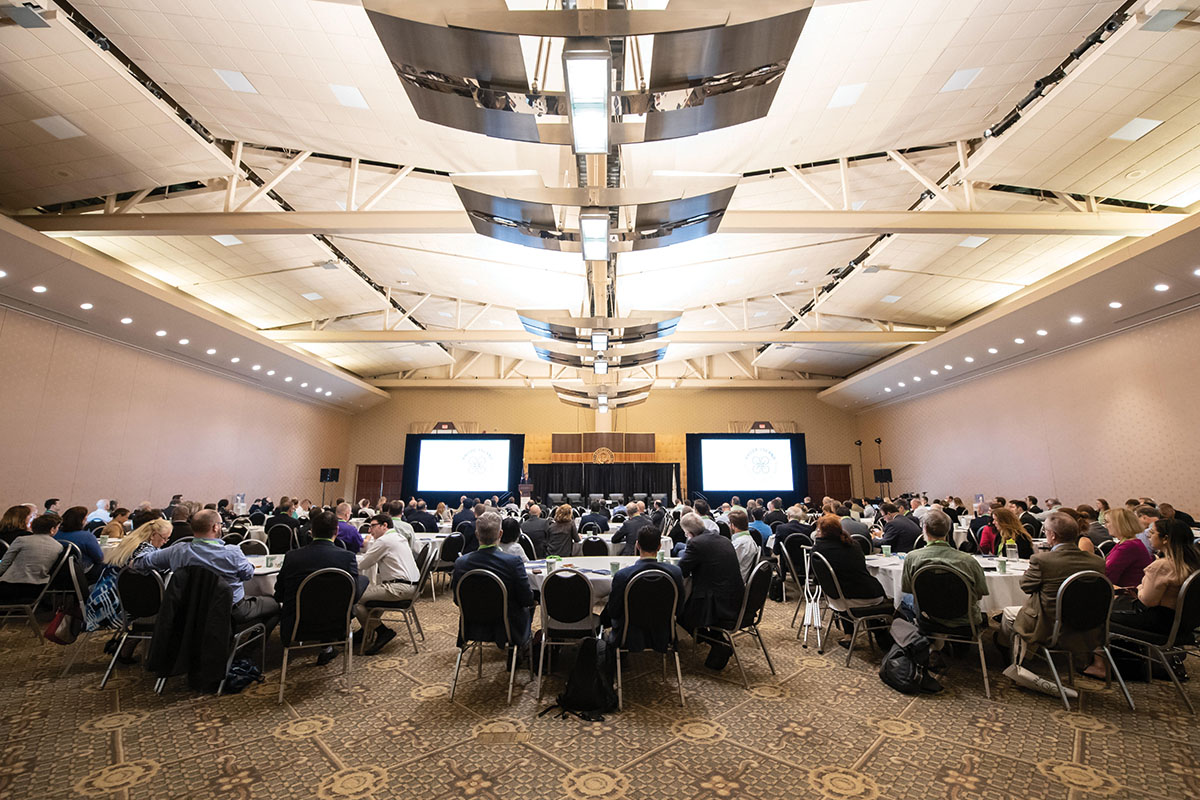Providence, RI Rhode Island Infrastructure Bank hosted over 350 people at their 3rd annual Rhode Island Infrastructure Summit last week. The event, held at the R.I. Convention Center, brought together government officials and professionals from a variety of disciplines for panel discussions on state and local infrastructure needs and solutions, connecting them with innovative financing options available through the Infrastructure Bank and other state agencies.

“The summit gets to the heart of our mission at the Infrastructure Bank. We bring together partners and innovators from a broad range of sectors to find cost-effective solutions to the state’s most pressing infrastructure needs,” said Jeffrey Diehl, CEO of Rhode Island Infrastructure Bank.
Infrastructure Bank was proud to welcome speakers such as Brown University president Christina Paxson, economist and public health scholar; former secretary of Housing and Urban Development, Henry Cisneros; and Rhode Island’s commerce secretary Stefan Pryor. Cisneros noted that the country’s national competitiveness, economic growth and equity objectives depend upon a healthy support system, such as infrastructure.
In her keynote, Paxson discussed what she considers the key factors in achieving equitable, sustainable economic growth in the state — advancing the state’s innovation ecosystem, building human capital and strengthening environmental sustainability in the Ocean State. The key is to find the alignment and complementarities between these three goals.
“We can grow an innovation ecosystem that incorporates sustainability as a central planning principle,” Paxson said. “We can use that innovative ecosystem to strengthen education in the state, creating the pipeline of talent that drives further growth. And we can build schools — from primary schools to universities — that educate young people about climate change and are themselves models of sustainability.”
The summit featured a series of breakout sessions with expert panelists and speakers, including elected officials, state agency subject matter specialists, representatives from non-profit organizations and private sector experts. These sessions weighed questions about resilient infrastructure and clean energy as tools for economic development, financing clean energy projects, investments in school infrastructure and the future of Rhode Island’s food economy.
The plenary session “Resilient Infrastructure, the Final Frontier” opened with presentations by Dr. Louis Gritzo of FM Global and Elle Hampen of the Atlas. Shaun O’Rourke, Rhode Island’s chief resiliency officer, moderated a conversation between the two business leaders and South Kingstown’s town manager, Robert Zarnetske.
